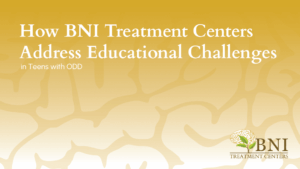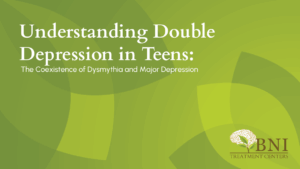Effects of Violent Video Games on Teens
In the wake of a spate of new mass shootings, our nation is mystified as to why these (mostly) young male shooters are triggered to inflict such carnage on humanity. Discussion centers around mental illness, political motivations, and the availability of automatic weapons as possible explanations for the spike in these violent acts. But more and more people are beginning to wonder about violent video games effects on teens.
Some of the most popular video games with youth and young adults involve the “first-person shooter”(FPS) genre. These violent games allow the player to view the action through the lens of a weapon, passing through the various levels of the game while mowing down the targeted characters. The action centers around guns and enemies. Popular PFS games include such titles as Paladins, Tom Clancy’s The Division 2 and Rainbow Six Siege, Call of Duty: Black Ops IV, and Grand Theft Auto V.
These violent games do carry age restrictions, based on the Entertainment Software Rating Board (ESRB) rating scale, with such categories as Teen, Mature (17+), and Adult Only. Retailers, however, loosely enforce these restrictions, and the games can easily be obtained by teens. Parental involvement in a teen’s gaming activities is the best safeguard against a teen and violent video games that are intended for adults only.
While the jury is still out about the affect of violent FPS games on the mental health of young people, there is increasing awareness that the games can interfere with social functioning. In addition, studies have identified areas of concern with high gaming involvement resulting in interpersonal-affective deficits, such as a lack of empathy. At the very least, it is important to continue to study the effects of violent gaming on the mental health of our young.
The Possible Violent Video Games Effects on Teens
Several studies have been conducted in the past ten years to look at the possible negative impact of violent video games on kids, teens, and adults. Some study results showed no significant connection between gaming and subsequent violent behavior, while other studies did report statistically significant results.
A recent study published in Frontiers in Psychology looked at 167 young adults who self reported as either non-gamers, non-violent gamers, or violent gamers, using an online questionnaire and the Levinson’s Psychopathy Scale. There was a link reported between heavy violent video game exposure and decreased practice of empathy, immature moral reasoning skills, moral disengagement. In reviewing existing studies, the authors found that violent video games can lead to negative behaviors, such as pathological lying, manipulative behavior, lack of impulse control, irresponsibility, and immediate reward seeking. These traits can give rise to such antisocial behaviors as aggression and delinquency.
An article published in USA Today in October 2018 addresses the confusion between opinions on a possible link between violent games and criminal behavior or violence. The article references a Dartmouth study that reported kids who played violent video games are more likely to be sent to the principal’s office for fighting. It also references a large international study of 17,000 kids, finding that exposure to violent video games led to increased physical aggression over time. However, the article also cited Justice Antony Scalia’s 2011 ruling in a Supreme Court case where he stated that studies do not prove that the games “cause minors to act aggressively.”
There is difficulty in discerning just how much time playing violent video games is safe, or how these games impact mental health. It could be that the games attract kids who are already struggling with a personality disorder or tend to be antisocial, which might make them more sensitive to the effects of the games, versus a well-adjusted teen who has the ability to filter fantasy from reality. Regardless, the effects of the games on young people should continue to be studied.
About First Person Shooter (FPS) Games
The images that our impressionable children are exposed to can resonate on a subconscious level. The young teen may be fascinated by the mayhem and gore he or she views on a violent FPS video game, just as they would be in viewing a violent R-rated movie or music videos. It is like a forbidden territory that they are being introduced to. While the effects of the gaming may not be visible to others, at least at first, there is a possibility that the constant exposure to dark, disturbing imagery can affect their sensitivity to aggression or violence and decrease pro-social behaviors.
The designers of the games portray the main character as a positive role model, such as a member of the military, the police, or some version of an anti-hero as in the Grand Theft Auto series of games. Regardless of the character or its supposed virtues, the purpose of the game is to kill the bad guys. Over and over the player shoots and destroys the enemy, and it is this repetitive behavior that has the capability to desensitize the young person to violence. It may be that the line between virtual reality and reality becomes blurred over time.
Signs of Declining Teen Mental Health
Because there is no consensus yet on the matter of violent video games and teen mental health, the best tactic for parents to take is simple vigilance. Be aware of behavioral and attitudinal changes observed in your teens. Keep an eye out for any signs of deteriorating mental health or an increase in aggressive or violent behavior. Some of the danger signs of declining mental health in your teen might include:
- Los off interest in favorite pastimes
- Excessive sleeping or other sleep disorders
- Sudden decline in academic performance
- Social isolation
- Sudden weight change
- Self-harming behaviors
- Mood swings
- Aggressive or violent behaviors
- Getting in trouble at school
- Bullying others
- Detachment
- Lack of empathy or compassion toward others
- Substance abuse
The above symptoms may represent any number of mental health disorders, such as depression, anxiety, bipolar disorder, or personality disorder, or a behavioral addiction such as gaming. Also, the isolation, lack of sleep, poor dietary choices, and constant exposure to dark, violent imagery may also result in many of these signs of an impending mental health issue.
How to Address the Violent Video Games Effects on Teens
Modern video games are extremely life like—a far cry from the old games of the past. These video games use highly sophisticated graphics to produce lifelike imagery, including the characters that populate the games. This means, too, that the violent scenes of death and destruction are also quite graphic.
Parents of young adolescents benefit from initiating controls over the type of games and the amount of time spent engaging in gaming. The younger the child is when parents exert control over this pastime, the easier it will be to monitor and control the gaming moving through the teen years. The games are designed to be addicting, so it is important to consistently enforce the limitations and limit exposure to video games.
As far as violent video games, parents need to be aware of the ESRB rating system to ensure that the teen is not playing games intended for adults or even older teens. Adhering to these guidelines can offer some protection against the teen being engaged in FPS games. Instill a time each evening when gaming is to end in order to ensure the teen gets sufficient sleep. Online gaming with players from different time zones can impact the hours the teen is keeping and negatively impact sleep quantity or quality.
Getting Treatment for a Teen Exhibiting Sociopathic Tendencies
While it remains to be seen if the young adults who have perpetrated mass shootings became mass murderers due to their time playing violent FPS video games, these individuals often have the signs of anti-social personality disorder, also referred to as sociopathy. These tendencies should be addressed as early as possible for treatment to be at all effective.
An anti-social personality disorder may present symptoms during the teen years, but will not be officially diagnosed until the age of 18. This allows the teen to receive treatment interventions that can hopefully circumvent a full-blown diagnosis. Sometimes the symptoms associated with this serious disorder are simply the teen acting out to negative environmental factors, and not the clinical definition of anti-social personality disorder.
The early signs of anti-social personality disorder may include:
- Lack of empathy
- Cruelty to animals
- A disregard for right and wrong
- Persistent lying for the purpose of exploiting others
- Hostility
- Irritability
- Exhibits no remorse for wrongdoing or harming others
- Trouble with the law, reckless or irresponsible behaviors
- Problems with relationships
- Impulsiveness
- Aggression
- Violent acts
Treatment for a teen with these symptoms, whether or not they are indicative of a later diagnosis of anti-social personality disorder, will involve intensive interventions. Treatment early on may help to instill positive changes in their behaviors that can divert the teen from developing more serious symptoms later. The teen may also exhibit the symptoms of an anxiety disorder or depression, which can also be treated. Treatment measures include:
- Psychotherapy. Teens can work with a therapist to identify anti-social behaviors and learn to reshape them towards being more empathetic towards others. Impulse control strategies, conflict resolution skills, and improved communication skills are also taught.
- Medication. Should the teen have co-occurring anxiety or depression, there are medications that can help to manage those symptoms.
BNI Treatment Centers Provides Residential Mental Health Treatment for Teens
BNI Treatment Centers is a Los Angeles-based mental health treatment center for teens designed to treat teens ages 12-17. This multi-modal program uses a blend of evidence-based therapeutic strategies and experiential activities for achieving excellent clinical results. If you are worried about violent video games effects on teens and recognize some concerning behaviors, please reach out to the team at BNI Treatment today at (888) 522-1504.




